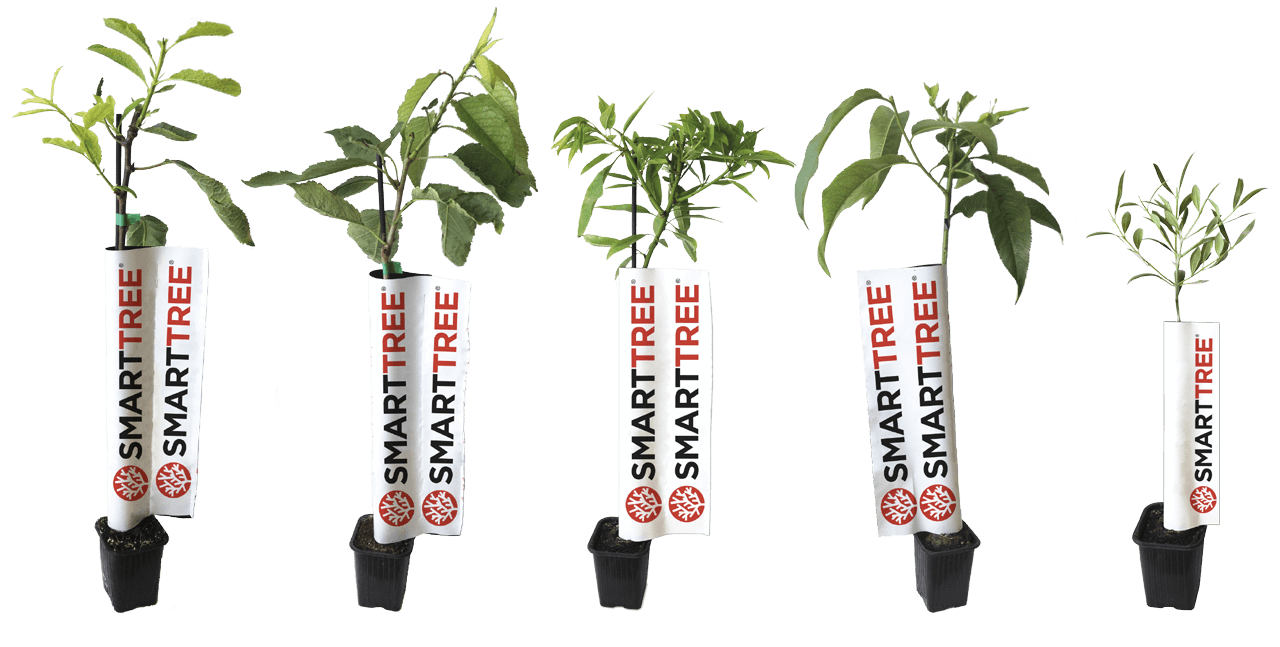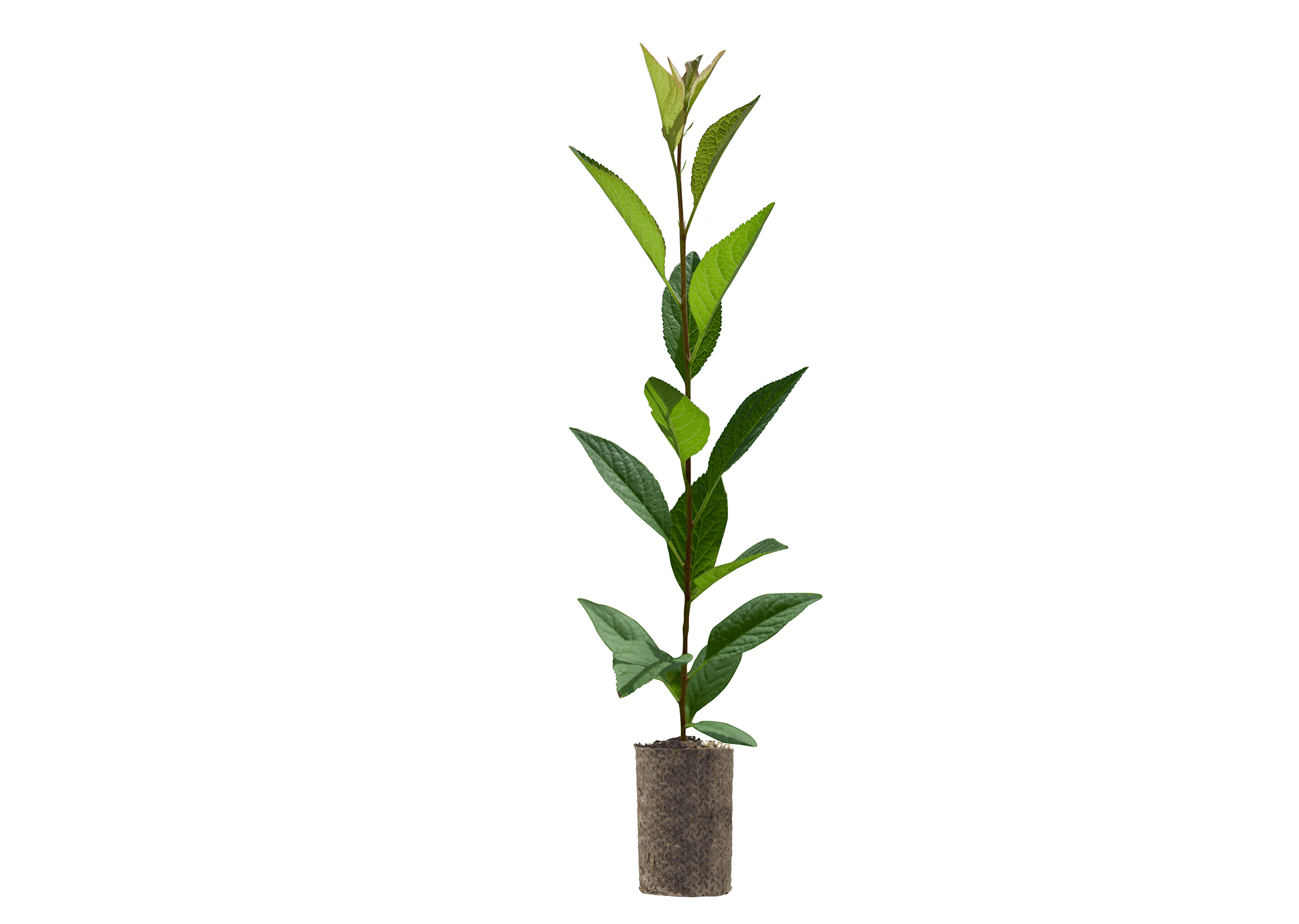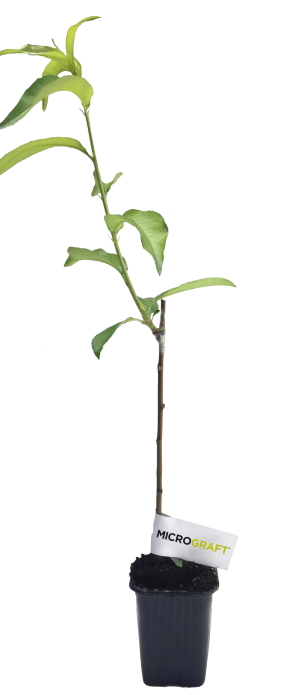Our Brands
At Agromillora, we provide plants adapted to the technological and health innovation demands of the fruit sector.
Intended for the end customer and ready to plant in the field
The Smarttree is an ideal plant format for adapting to the new model of super high density plantations. This model allows total mechanisation from the moment of planting with the aim of quickly creating an efficient productive wall that also reduces costs.

Characteristics of the Smarttree Plant
Plants are 50-60 cm tall, grafted in the case of fruit trees, and semi-hardwood rooted cuttings in the case of olive plants.
Rigorous genetic and health controls through state-of-the-art techniques such as real-time PCR.
They have a well-established root system in a substrate rich in coconut fiber and peat to facilitate ventilation and ensure sanitary quality.
Our plants come from clonal material to guarantee maximum genetic and sanitary quality.
The plant has been pruned at the top and has various branches.
Smarttree plants come in a 250 ml container.
It is divided into 2 holes, the first for locating the plant and the second for inserting the stake as support for the plant in the field.
The Rootpac series of rootstocks originates from the Prunus rootstock breeding program developed between 1996 and 2012.
The search for these rootstocks focused on meeting the needs of a fruit industry in constant evolution and development towards efficiency and intensification of plantations.
Objectives of the Rootpac Genetic Improvement Program
- Creation of varieties with low vigor.
- Adaptation to different soil types.
- Easy in vitro multiplication to provide adequate production costs.
- Reduction of the need for chilling hours.
- Achieving a high degree of compatibility with species and varieties.

To achieve these objectives, a germplasm bank of 268 clones and cultivars was used, 98 parentals were utilized, 427 targeted crossings were conducted, approximately 85,700 pollinations were performed to obtain 343 offspring, of which 68 were studied, thanks to 98 field trials, spread across 27 locations in Spain and 12 abroad. All trials resulted in 5 commercial rootstock varieties: Rootpac 20, Rootpac 40, Rootpac 70, Rootpac 90, and Rootpac R.
At Agromillora, we are the largest multiplication platform globally.
Micrograft is an exclusive product for nurseries for subsequent regrowth. It represents a savings in production time and labor, as well as an increase in flexibility, allowing production both in pots and bare root.
We market a large number of Micrograft combinations depending on the chosen rootstocks, species, and varieties.
Characteristics of Micrograft
It’s a rootstock about 30 cm in height and 5 mm in thickness in a 250 ml container, with a well-established root system in a substrate rich in coconut fiber and peat.
The most common rootstocks are: Rootpac Series, GF-677, Garnem, Cadaman, Myrabolan 29c, Mariana, etc.
The rootstock is micrografted with a bud that sprouted and grew at the time of sale.
The most common species are nectarines, peaches, cling peaches, apricots, cherries, plums, and almonds.

